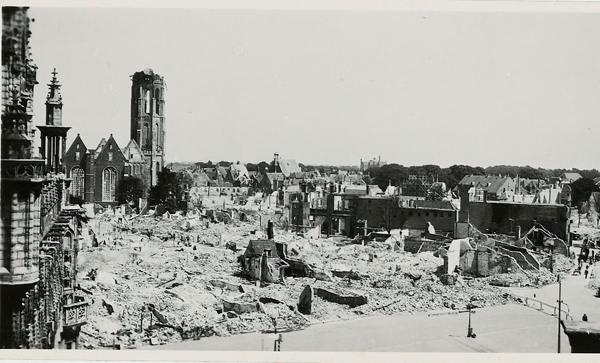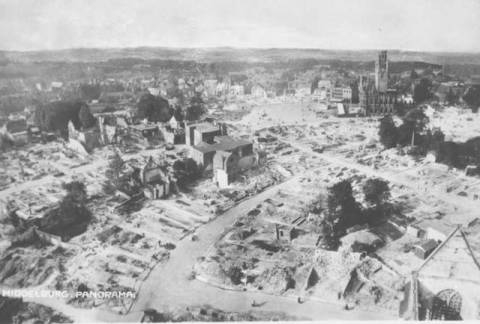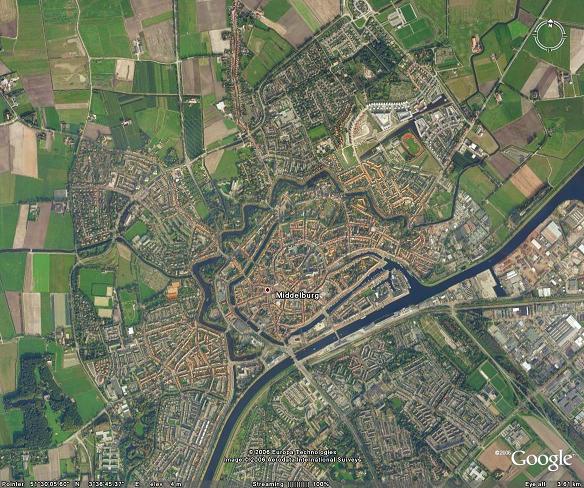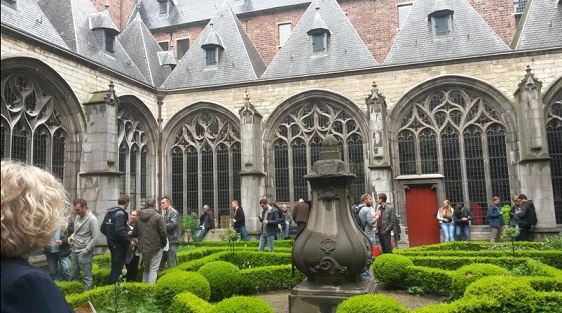
So I went back to Middelburg this weekend for Mother’s Day, not because the first Abdijbierfestival was going to be held on Friday and Saturday. Nu-uh. But since I was in town anyway it wou;d’ve been a shame if I didn’t go. Luckily my parents enjoy their tipples too and because as they’re fond of the stronger Belgian beers and as the name hints at, the focus was on abbey brewed beers, this was right up their street.
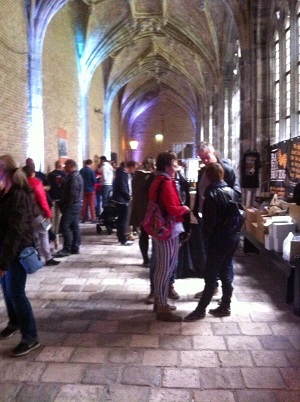
The Middelburg abbey hasn’t been used as such since the Eighty Years War and currently is used by the Zeeland Province government; the festival was held within the cloister walls around the herb garden. It was a great setting for a trappist/abbey beer orientated festival and all the great Belgian names were represented: La Trappe, Maredsous, Affligem, Rochefort, Westmalle, Achel, Chimay, Orval, etc. What’s more, the local beer enthusiasts club had gotten a lot of much more obscure beers in bottle, including Westvleteren 8 and 12. There were also several tables with hobby brewers and small, regional brewers. And because this is Zeeland, one of those was Emelisse, not to mention Brouwerij Kees, started by an ex-Emelisse brewer and which for me had the best beers of the beerfest. Evidence for which can be found in my Twitter timeline
It was a fun little festival, but it was noticable this was the first time it was organised. At times the hallways were slightly too narrow, especially around the more popular stands. What was lacking were seating/standing areas away from bbeythe stands themselves, apart from the cloister garden, which would’ve been too small too if more people had discovered it. Also lacking: food stands. There was the abbey’s own catering, but that was located before the main festival itself, at the entrance which didn’t invite to go get something, having to run the gauntlet of people entering and exiting. Finally, a very novel complaint for a festival: the glasses were too big, almost normal beer glasses size, which is great value for money but does mean you get pissed a lot quicker than at say a Borefts.
All in all a fun way to spent an afternoon, but not quite something you could spent a whole day at. Mum and dad liked it as well, but there was no need to buy more coins. Hopefully it will be held again next year, with more participants and hopefully outside in the abbey square, weather permitting.
